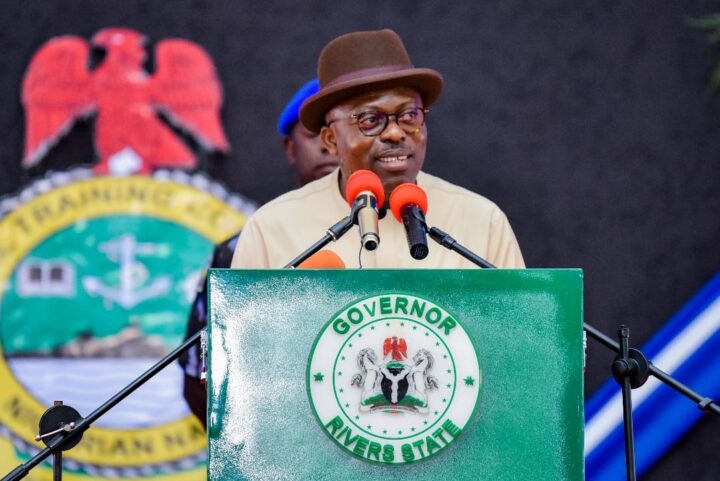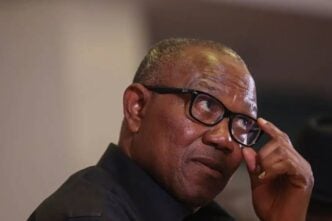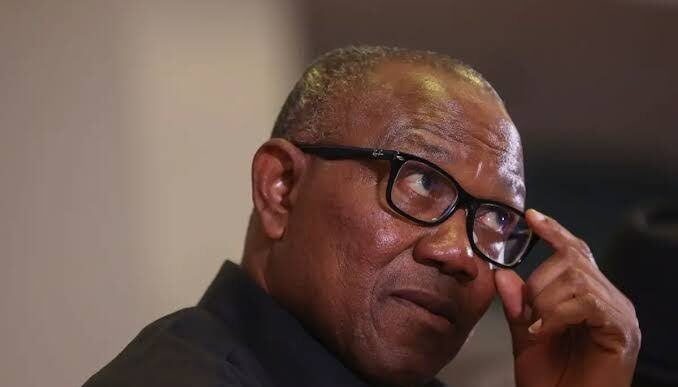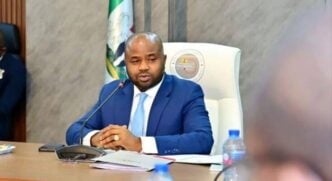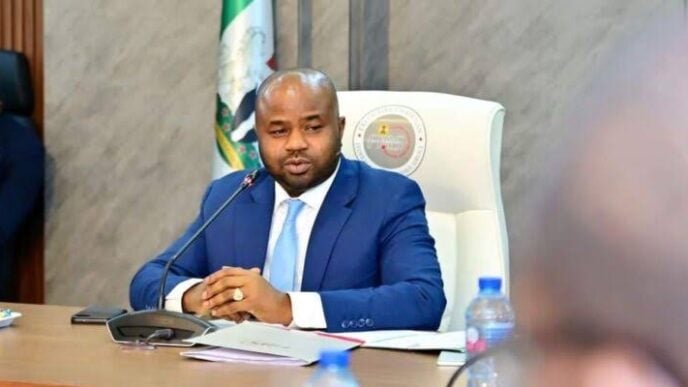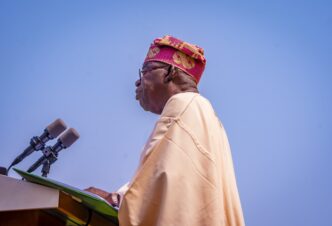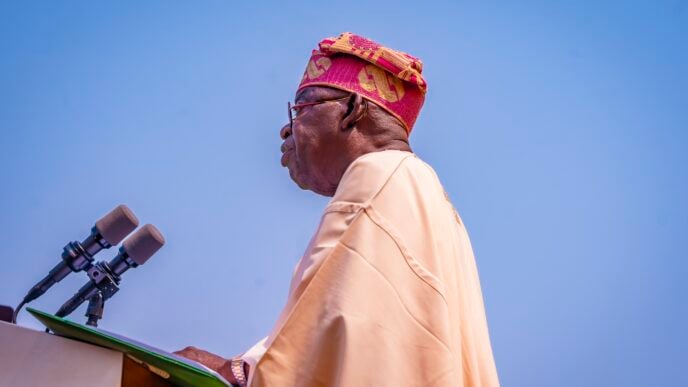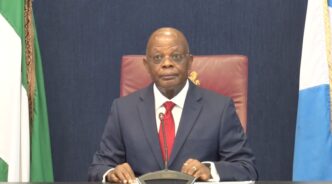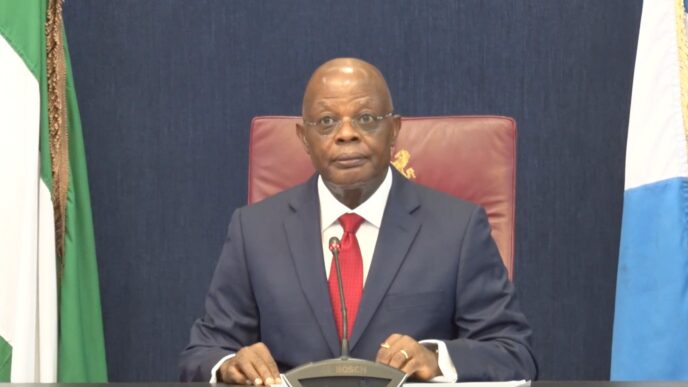Siminalaya Fubara, Rivers state governor
Nigeria’s fragile democracy is crumbling alarmingly, and the country’s state governors bear direct responsibility for this dangerous decline. Once considered a crucial counterbalance to federal overreach, today’s governors have become either willing accomplices or passive enablers of authoritarian rule. Their cowardice and short-sightedness are eroding the foundations of Nigeria’s federal structure, effectively paving the way for de facto one-man rule.
The Rivers state precedent: A constitutional crisis
The recent political crisis in Rivers state starkly illustrates this disturbing trend. Nigeria’s constitutional framework explicitly protects state governors from arbitrary removal, with clear legal precedents affirming this protection. Yet when federal power was brazenly deployed to undermine a state’s leadership through allegedly illegal means, the affected governor and his peers’ response was telling.
Rather than defending his mandate through all available constitutional means, Sim Fubara has chosen appeasement over principle, reportedly seeking reconciliation instead of mounting a robust legal challenge. This shameful capitulation sets a dangerous new standard – if state executives won’t defend their constitutional authority, state autonomy becomes meaningless.
Advertisement
This contrasts starkly with isolated examples of political courage elsewhere in Nigeria, where some leaders have successfully fought electoral manipulation through the courts. However, such cases grow increasingly rare as most governors prioritise political survival over constitutional duty.
The collapse of institutional checks
Historically, the Nigerian Governors’ Forum (NGF) represented a potentially powerful check on presidential power, particularly during periods of federal overreach. As an assembly of all 36 state governors, it possessed the collective mandate and political capital to defend state autonomy and the rule of law.
Advertisement
Today, that institution has been neutered – whether through coercion, co-option, or sheer cowardice. The forum’s muted response to the Rivers crisis and its failure to robustly challenge other instances of executive overreach demonstrate its alarming decline as a meaningful counterweight.
The Nigeria Governors’ Forum (NGF)’s failure to act effectively signifies the breakdown of the last institutional protection against unchecked presidential power, especially considering the federal legislature’s susceptibility to party divisions and the increasing politicisation of the judiciary. This has severe consequences:
The autonomy of states is being systematically undermined through the manipulation of elections, the open disregard for rulings from the courts, and the removal of state officials without regard for constitutional procedures.
Democratic norms are being eroded as governors fail to present a united front against the executive branch’s overreaching influence.
Advertisement
The legitimacy of state administrations is being questioned as governors increasingly seem to prioritise the central government’s directives in Abuja over the needs and wishes of the people who elected them.
The path to one-man rule
Nigeria now finds itself in a perilous position. The steady erosion of its federal structure proceeds without constraint due to several critical factors:
State governors are demonstrating a greater fear of the central government than a commitment to upholding their constitutional duties.
Advertisement
The opposition forces lack the necessary unity or resolve to organise meaningful resistance against these trends.
Civil society and the general public have limited avenues for ensuring that leaders are held accountable for their actions.
Advertisement
The consequence of this is the emergence of a system where the presidency acts without effective constraint, state governments operate more as administrative branches of the centre rather than independent entities, and the democratic safeguards intended to prevent overreach exist in name only.
A final warning
Advertisement
This critical juncture demands immediate and decisive action if Nigeria is to avoid a descent into irreversible authoritarianism:
State governors must urgently reassert their constitutional responsibilities by forming a united front against federal overreach and vigorously defending their states’ autonomy.
Advertisement
The Nigeria Governors’ Forum must be revitalised and transformed into a robust platform for principled opposition to the executive branch’s excesses.
Civil society organisations and the Nigerian electorate must significantly increase the pressure on their leaders to ensure they uphold their democratic obligations and act in accordance with their mandates.
The stark reality is that Nigeria now operates as an elective dictatorship because those in positions of intermediate power have permitted this situation to arise. A system where regional executives prioritise their own political survival over the sovereignty of their states has already strayed far from the principles of true democracy. The potential for reversing this decline hinges entirely on whether Nigeria’s governors can rediscover the courage and conviction that their offices demand.
The immediate future will be telling. Either Nigeria’s state executives will recognise and act upon their constitutional duties, or they will be remembered as the generation that oversaw the ultimate demise of Nigerian federalism. The decision rests with them, but every Nigerian citizen will bear the ramifications
Nwanze is a partner at SBM Intelligence
Views expressed by contributors are strictly personal and not of TheCable.

